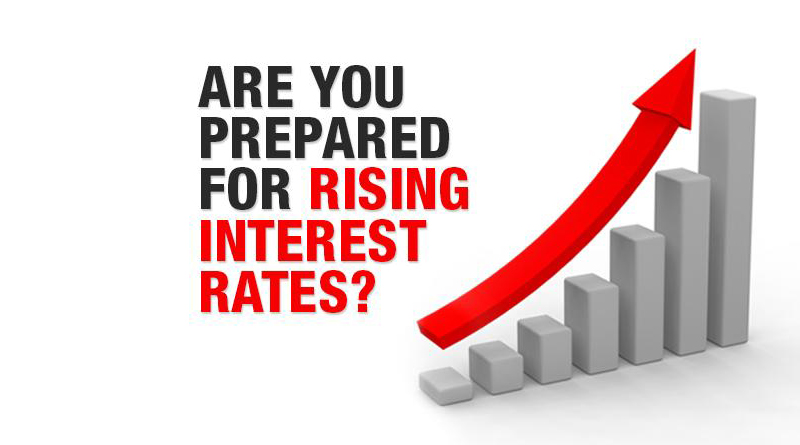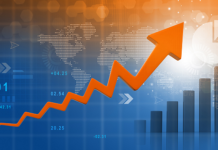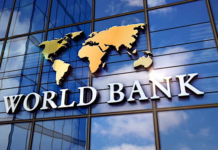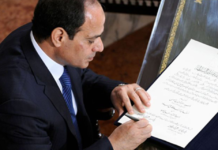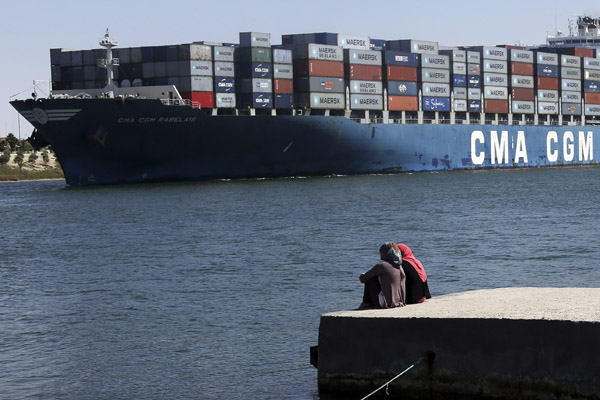by Amal Mohy
Even if the US Fed is expected to raise interest rates at its policy meeting tomorrow, uncertainty is still roaming the markets and policy makers cannot agree on the matter. Economists cannot agree about whether the Federal Reserve will keep the old policy of zero interest rates which has been adopted since December 2008. Wall Street policy makers cannot even decide whether the move is healthy for the economy.
Perhaps the Fed itself has caused that confusion. One moment the Fed gives reassuring statements that it has to delay the hike of interest rates after China’s turmoil and that it will not add to the woes of the global markets. The next moment, the Fed is urging action as soon as possible.
This confusion may suggest the Fed is afraid of taking responsibility. Naturally, the stakes are high. The job of the US Fed is to keep unemployment and inflation at low levels. If their decision is proved wrong, not only would it be blamed for the coming financial crisis, but it would also lose its credibility.
Raising interest rates means that the cost of borrowing and the return on savings will hike. Since 2008, the Fed has supported financial risk-taking in an attempt to raise employment and stimulate economic growth. Close to zero interest rates also force banks not to make loans. This policy may change since the Fed reserves are so huge.
A majority of economists predict the Fed will not raise interest rates until next year. Only 9.5 per cent think the Fed will increase interest rates in October. Others expect the hike of interest rates in December.
Some economists, like hedge-fund titan Ray Dalio, Krishna Memani, chief investment officer of OppenheimerFunds Inc., and Larry Summers, the former treasury secretary and Harvard University president; are against raising interest rates as it would severely impact the weak global economy and would make banks print extra money.
Economists are afraid that it is too early for a tightening policy. It would hinder growth, particularly since emerging markets are already slowing, including China, Brazil, South Africa, Malaysia and Russia. Moreover, commodity prices, oil prices, trade and stock markets remain flat. To be frank, the world cannot rely on the growth of Europe and other developed economies. The decision, therefore, does not affect the US alone.
“What’s keeping the Fed from lifting rates is not the US economy, which is actually doing quite well,” said Bernard Baumohl, chief global economist at Economic Outlook Group LLC. Baumohl predicts the Fed will not raise interest rates until December. “It’s the worry that a sharp slowdown in China will devastate emerging countries enough to drag down global economic growth, and that may ultimately impact the US, too.”
Nonetheless, China’s benchmark and official data about GDP are not real indicators of the Chinese economy. In other words, the state of the world’s second largest economy is absolutely vague. Economists and analysts, therefore, cannot easily predict the effects of China’s slowing growth on global economies. Only concerns about China’s slowdown are the main drive behind “Black Monday” and the blunder of global markets in recent weeks.
On the other hand, other economists such as William Lee of Citigroup Inc., Haselmann and Peter Tchir of Brean Capital LLC, support raising interest rates after seven years of the financial crisis. They even believe it is a necessary move since cheap money has not done much for growth. It is true that with zero interest rates, money becomes cheap; but not everyone can get it.
“Seven years at zero doesn’t seem to have fixed everything,” Tchir said. “So let’s try something different.”
Besides, supporters believe the first rate-hike is not that big; it will not cause a global crisis. It would be a slight change (about 0.25 per cent). They also argue that inflation rates are below the Fed’s target of 2 per cent, particularly after the collapse of oil prices. Unemployment is so low that it is considered full employment. The country is pumping over 200,000 job vacancies each month. Thus, there is no reason the Fed should hold on the zero interest rate.
What should really concern people is the Fed’s decisions on the next meetings, not tomorrow’s meeting. Would it continue raising interest rates? Would it be slow? What if raising interest rates have affected asset values in the long run, such as housing in the UK? Economists, in fact, cannot find definite answers right now. The country has not experienced before such a long time of near zero interest rates, so consequences cannot be easily anticipated. The Fed has to experiment and see what happens next, even if this raises big concerns among people.


